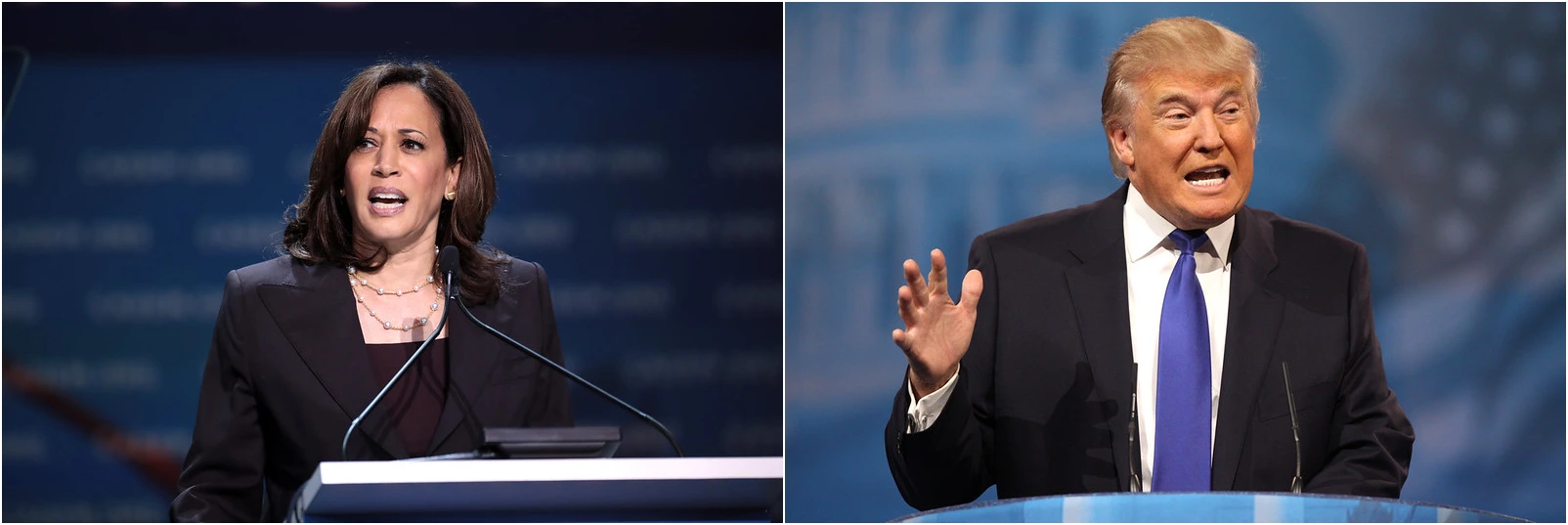As the U.S. gears up for its next presidential election, the political landscape is as complex as it is crucial for shaping the nation’s future.
This year, voters face a significant choice between former President Donald Trump, a Republican candidate whose tenure from 2017 to 2021 brought sweeping economic and immigration reforms, and Vice President Kamala Harris, the Democratic candidate who has positioned herself as a proponent of social equity, healthcare reform, and economic growth for all.
Trump and Harris represent two vastly different visions for America. Trump advocates for a “Make America Great Again” approach, emphasizing deregulation, economic growth through tax cuts, and a strong stance on immigration enforcement. His policies appeal to those who feel alienated by rapid social changes and seek a return to traditional values, particularly regarding national security and reduced government intervention in markets.
On the other hand, Harris has built her platform on social justice, healthcare access, and climate change, proposing a balanced economy that considers both growth and the welfare of the most vulnerable. Harris argues that investing in green energy, education, and infrastructure can stimulate long-term growth and make the economy more resilient to global challenges, while pushing for a reformed healthcare system that would expand coverage and reduce costs for Americans.
Each candidate has also faced controversies. Trump, for instance, remains under scrutiny for his myriad divisive comments, his handling of the COVID-19 pandemic, perceived divisiveness on racial issues, and ongoing legal battles that have dominated media headlines.
Harris, too, has encountered criticism, especially over her prosecutorial record, with opponents questioning her stance on criminal justice reform, and her inability to answer questions in interviews.
Both candidates face the challenge of appealing to moderates and younger voters, who may be put off by these controversies and the polarized political climate.
Underlying their platforms are the fundamental differences between the Republican and Democratic parties.
The Republican Party traditionally emphasizes limited government intervention, individual liberties, and a strong national defense. Republicans believe in policies that support business growth, lower taxes, and a decentralized approach to healthcare and education.
Conversely, the Democratic Party supports policies that they argue serve the collective good, including a government role in healthcare, social security, and addressing systemic inequality. Democrats tend to focus on policies that seek to expand rights, address climate change, and provide a stronger social safety net.
As voters consider these options, the importance of their choice cannot be overstated.
Voting is not only a civic duty but a fundamental expression of individual voices in determining the future of the United States.
This election presents an opportunity for Americans to reflect on their vision for a better and stronger nation—one that ensures safety, opportunity, and fairness for all citizens.
By participating in the election, voters shape the future of the country and reaffirm the ideals of democracy, regardless of the candidate or policies they support.
Every vote cast is a step toward an America that reflects its people’s hopes, fears, and aspirations, aiming to secure a brighter, more inclusive future for generations to come.
